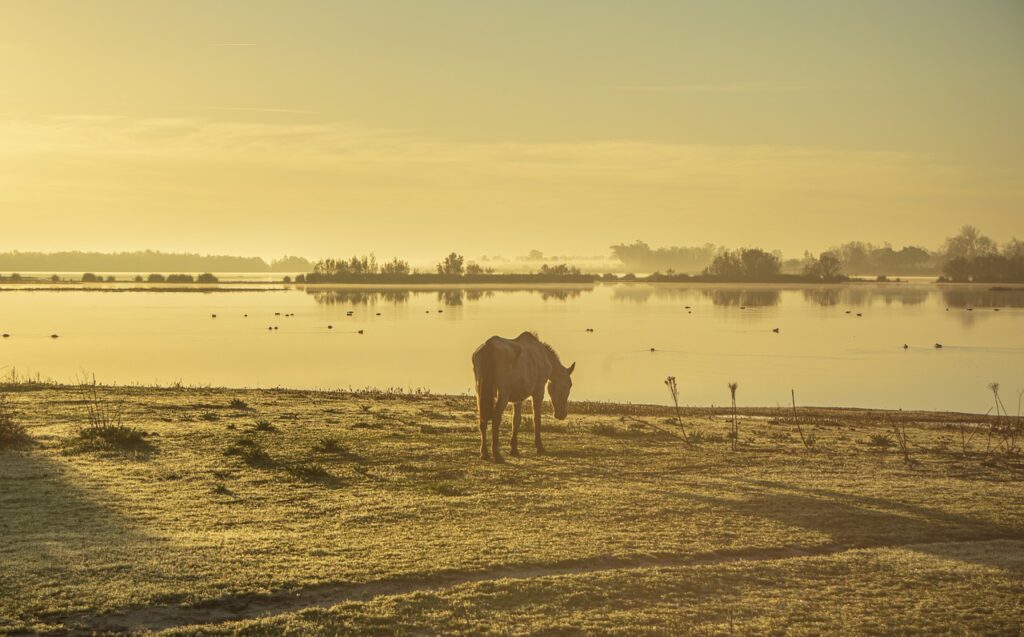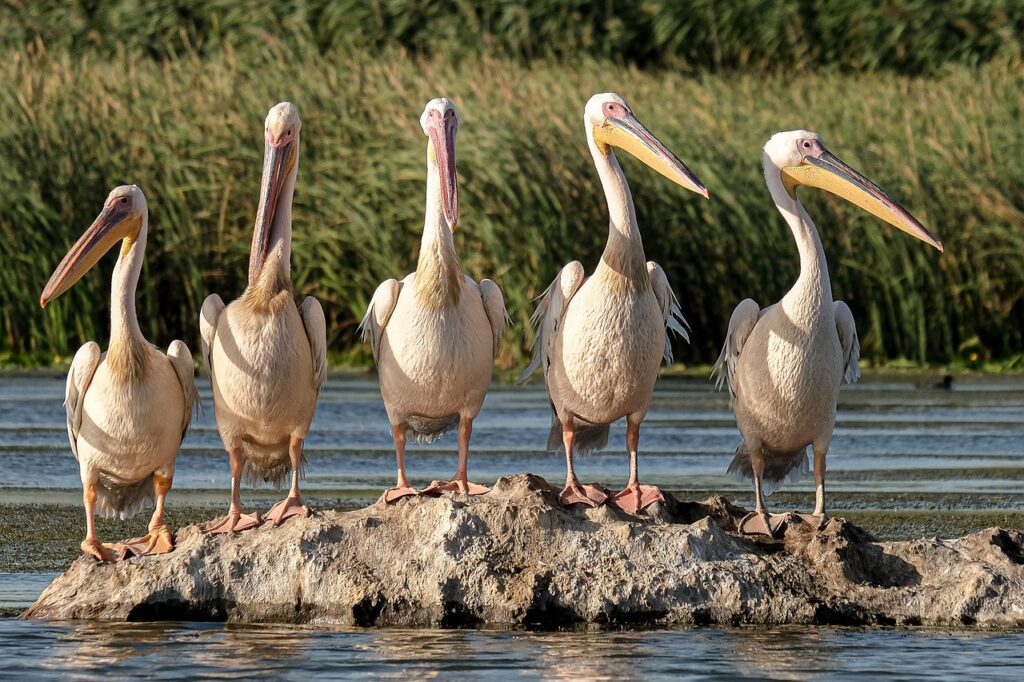Are you ready to embark on an eco-friendly beach adventure in Mexico? This article will guide you on how to travel sustainably while enjoying the beautiful beaches of this vibrant country. From tips on reducing your carbon footprint to supporting local communities, we’ll cover it all. Get ready to discover the wonders of Mexico’s beach destinations while making a positive impact on the environment.
Eco-Friendly Beach Tourism in Mexico: How to Travel Sustainably
Mexico is known for its stunning beaches and rich marine biodiversity, making it a popular destination for beach lovers. However, with the increasing concerns about environmental impact and sustainability, it is important to travel responsibly and choose eco-friendly options to minimize our footprint. In this article, we will explore ten key aspects of sustainable beach tourism in Mexico, providing you with practical tips and insights on how to make your beach vacation eco-friendly.
1. Choose eco-friendly accommodations
When planning your beach vacation in Mexico, one of the first steps towards sustainability is choosing eco-friendly accommodations. Look for hotels with sustainability certifications, such as LEED or Green Globe, which indicate that the property has implemented environmentally-conscious practices. These hotels often have energy-efficient lighting, water-saving fixtures, and recycling programs in place.
Consider staying in eco-friendly resorts that prioritize environmental conservation. These resorts often have initiatives such as reforestation programs, coral reef protection efforts, and waste reduction strategies. By choosing these resorts, you can support their sustainability goals and have a positive impact on the environment.
Opt for accommodations that use renewable energy sources, such as solar or wind power. This helps reduce greenhouse gas emissions and reliance on fossil fuels. Additionally, choose hotels that promote water conservation through practices like water-efficient landscaping, low-flow toilets, and greywater recycling systems.
Staying in accommodations that support local communities is another way to make your beach vacation more sustainable. Look for hotels that hire and train local staff, support local businesses, and give back to the community through social initiatives or partnerships.
Find hotels that have implemented waste management practices to minimize their impact on the environment. This includes recycling and composting programs, as well as initiatives to reduce single-use plastics, such as providing refillable toiletry containers and reusable water bottles.
Look for accommodations with organic and locally-sourced food options. These hotels prioritize sustainable agriculture and support local farmers and producers. By choosing these options, you can enjoy delicious meals while reducing your carbon footprint.
Consider eco-friendly camping or glamping options for a unique and sustainable beach experience. These accommodations often have minimal impact on the environment, utilize eco-friendly facilities, and provide you with the opportunity to connect with nature.
Lastly, choose accommodations that offer educational programs on sustainability. These programs can include workshops, guided tours, or talks on topics such as marine conservation, sustainable fishing practices, or eco-friendly initiatives. By learning about these topics, you can gain a deeper understanding of the local environment and be inspired to make positive changes in your own life.
For beach lovers who want to directly contribute to the conservation of the marine environment, look for eco-friendly accommodations that offer beach clean-up activities. Participating in these activities allows you to take an active role in preserving the beauty of the beach and its surrounding ecosystem.

2. Pack sustainable beach essentials
When heading to the beach, it is important to pack sustainably and minimize waste. Here are some essential items for a sustainable beach trip:
Bring a reusable water bottle to stay hydrated without contributing to plastic waste. Look for options that are durable and BPA-free.
Pack a reusable beach towel made from eco-friendly materials, such as organic cotton or recycled fibers. These towels are not only better for the environment but also more lightweight and quick-drying.
Choose eco-friendly sunscreen and insect repellent to protect your skin without harming marine life. Look for products that are biodegradable, reef-safe, and free from harmful chemicals like oxybenzone and octinoxate.
Pack biodegradable toiletries, such as shampoo, conditioner, and soap. These products are designed to break down naturally in the environment, minimizing the impact on water ecosystems.
Use a reusable beach bag instead of plastic bags to carry your belongings. Look for options made from sustainable materials like jute or canvas.
Bring plastic-free snacks and food containers to reduce single-use plastic waste. Opt for reusable containers or wraps for sandwiches, fruits, and other snacks.
Pack eco-friendly and reusable beach toys for children. Look for options made from sustainable materials, such as bamboo or recycled plastic.
Bring a portable trash bag for collecting your own waste and any litter you come across on the beach. This helps keep the beach clean and prevents waste from entering the ocean.
Use eco-friendly and reef-safe snorkeling gear to explore the underwater world without causing harm to marine ecosystems. Avoid using products that contain harmful chemicals or non-biodegradable materials.
Bring a reusable straw and cutlery for picnics or beachside meals. This helps reduce plastic waste and keeps the beach clean.
By packing these sustainable beach essentials, you can enjoy your beach vacation while minimizing your impact on the environment and marine life.
3. Support local and sustainable food options
Food is an important aspect of any vacation, and by choosing local and sustainable options, you can support the environment and local communities. Here are some ways to enjoy sustainable food during your beach trip:
Dine at restaurants that source ingredients locally. These restaurants often have partnerships with local farmers, fishermen, and producers, ensuring fresher and more sustainable food options.
Try traditional Mexican dishes made with sustainable ingredients. Mexican cuisine offers a rich variety of dishes that incorporate locally-sourced ingredients and traditional cooking methods.
Support restaurants that prioritize sustainable fishing practices. Look for options that follow sustainable fishing guidelines, such as avoiding overfished species, using selective fishing techniques, and supporting responsible fishing communities.
Visit local farmers’ markets for fresh and organic produce. These markets provide an opportunity to connect with local farmers and support sustainable agriculture.
Choose vegetarian or vegan restaurants for eco-friendly dining options. Plant-based meals have a lower carbon footprint compared to animal-based dishes and help reduce the demand for unsustainable livestock farming.
Support restaurants that minimize food waste through initiatives like composting, food donation programs, or portion control. These practices contribute to reducing food waste, a significant environmental issue.
Try locally-produced and organic beverages, such as craft beers, wines, or fresh fruit juices. This supports local producers and reduces the carbon footprint associated with importing beverages.
Visit local co-ops and organic farms for sustainable food options. These establishments often prioritize sustainable farming practices and offer a unique farm-to-table dining experience.
Participate in cooking classes and learn about sustainable Mexican cuisine. These classes provide insights into traditional cooking techniques, local ingredients, and the importance of sustainability in Mexican gastronomy.
Support establishments that offer farm-to-table dining experiences. These experiences often involve visiting local farms and learning about sustainable farming practices before enjoying a meal made from fresh, locally-sourced ingredients.
By choosing sustainable and local food options, you can experience the diverse flavors of Mexico while supporting environmentally-friendly practices and local communities.

4. Respect and protect the beach environment
When visiting the beach, it is important to be respectful and take steps to protect the fragile marine ecosystem. Here are some practices to keep in mind:
Avoid stepping on or damaging coral reefs. Coral reefs are delicate and essential ecosystems that provide habitat for a wide range of marine life. Stepping on or touching coral can cause irreversible damage.
Do not disturb or touch marine life. Many marine species are sensitive, and touching them can cause stress or harm. Observe marine creatures from a safe distance and avoid interfering with their natural behavior.
Dispose of your waste properly in designated bins. Leave no trace and avoid leaving any trash on the beach. Use the provided trash bins or take your waste with you to dispose of it responsibly.
Reduce your use of single-use plastics. Avoid bringing disposable plastic items to the beach, such as straws, bottles, or bags. Instead, opt for reusable alternatives and make a conscious effort to minimize plastic waste.
Respect and follow any beach regulations or restrictions. Beaches may have specific rules in place to protect the environment or preserve nesting habitats. Pay attention to signs and guidelines provided by local authorities.
Participate in beach clean-up activities. Many beach destinations organize clean-up events, and joining these activities is a great way to contribute to the cleanliness and conservation of the beach.
Avoid bringing pets or domestic animals to the beach. Pets can disturb wildlife and lead to potential conflicts with other beachgoers. Respect the natural environment by leaving your pets at home or in designated pet-friendly areas.
Minimize beach erosion by staying on designated paths or walkways. Walking on sand dunes, vegetation, or other sensitive areas can contribute to erosion and damage the ecosystem. Stick to established paths to help preserve the beach landscape.
Do not leave any food or trash on the beach. Food waste attracts pests and can harm wildlife. When enjoying a snack or picnic on the beach, make sure to clean up thoroughly and dispose of any leftovers properly.
Avoid using beach bonfires or barbecues unless permitted by local regulations. These activities can lead to fires, damage to the beach environment, and pollution. Respect any restrictions in place and opt for alternative cooking methods if necessary.
By following these practices, you can contribute to the preservation and protection of the beach environment, ensuring that future generations can also enjoy its beauty.
5. Engage in sustainable water activities
When enjoying water activities during your beach vacation in Mexico, it is essential to choose eco-friendly options that prioritize marine conservation. Here are some ways to engage in sustainable water activities:
Choose snorkeling or diving tours that promote marine conservation. Look for operators that follow responsible snorkeling or diving guidelines, such as not touching or stepping on coral, and adhering to safe diving practices.
Join eco-friendly boat tours and avoid activities that harm marine life. Some operators prioritize the well-being of marine animals and minimize disturbance to their natural habitats. Avoid tours that involve feeding or riding marine creatures.
Participate in beach and underwater clean-up activities. Many organizations and local communities organize clean-up initiatives to remove trash from the beach and ocean. By joining these activities, you can actively contribute to a cleaner and healthier marine environment.
Support eco-friendly water sports operators. Look for companies that implement measures to minimize their environmental impact, such as using eco-friendly equipment, reducing engine noise, and following wildlife viewing guidelines.
Learn about local marine ecosystems and conservation efforts. Take the opportunity to educate yourself about the marine life in the area, the challenges they face, and the ongoing conservation efforts. This knowledge will deepen your appreciation for the ocean and inspire you to take action in protecting it.
Avoid touching or removing any marine souvenirs. Shells, corals, and other marine artifacts play an important role in the ecosystem. Leave them where you find them to preserve the natural balance of the beach.
Follow responsible whale-watching guidelines. If you have the chance to see whales in their natural habitat, maintain a safe and respectful distance to avoid causing stress to these magnificent creatures. Follow the guidelines provided by the tour operator and local authorities.
Stay a safe distance from nesting sea turtles or bird species. Nesting areas are crucial for the survival of these species, and any disturbance can impact their nesting success. Observe from a distance and ensure that you do not interfere with their natural behavior.
Choose paddleboarding or kayaking over motorized water activities. These low-impact activities allow you to explore the waterways while minimizing noise, pollution, and disturbance to marine life.
Support local organizations working towards water conservation. By donating to or volunteering with organizations focused on marine conservation, you can contribute to their efforts in protecting the marine environment.
By choosing responsible and sustainable water activities, you can have an enjoyable beach vacation while respecting and protecting the marine ecosystem.

6. Learn about local environmental initiatives
While enjoying your beach vacation in Mexico, take the opportunity to learn about local environmental initiatives and engage with the community. Here are some ways to do so:
Visit eco-parks and nature reserves. These protected areas often offer guided tours, educational exhibits, and interactive experiences that showcase the local biodiversity and conservation efforts.
Support local environmental organizations through donations or volunteer work. Many organizations focus on conservation projects, environmental education, or wildlife rehabilitation. By supporting them, you can contribute directly to their efforts.
Learn about local endangered species and conservation efforts. Mexico is home to many endangered species, including sea turtles, jaguars, and whales. Visit local conservation centers or research initiatives focused on the protection of these species.
Participate in guided eco-tours to learn about the local ecosystem. These tours, led by knowledgeable guides, can provide insights into the flora, fauna, and natural processes of the region. Ask questions and engage in discussions to deepen your understanding.
Visit environmental education centers and museums. These institutions provide valuable information about the local environment, conservation efforts, and sustainable practices. Take the time to explore the exhibits and learn about the unique natural heritage of the area.
Support eco-friendly transportation initiatives. Look for initiatives that promote sustainable transportation options, such as bike-sharing programs, electric vehicle rentals, or public transportation systems. By using these alternatives, you can reduce your carbon footprint during your travels.
Learn about sustainable farming and agricultural practices. Mexico has a rich agricultural heritage, and by visiting local farms or engaging with farming communities, you can learn about traditional and sustainable farming methods. This knowledge can contribute to making more informed choices about the food you consume.
Engage in community-led beach cleaning and conservation projects. Many local communities and organizations organize beach cleaning activities or conservation projects. By joining these projects, you can actively contribute to improving the coastal environment.
Visit local indigenous communities and learn about their sustainable practices. Indigenous communities often have deep connections to the land and have sustainable practices that have been passed down through generations. Engaging with these communities can provide insights into sustainable living and cultural preservation.
Attend environmental workshops and seminars. Many destinations offer workshops or seminars on topics such as sustainable tourism, environmental conservation, or eco-friendly practices. Participate in these events to expand your knowledge and meet like-minded individuals.
By learning about local environmental initiatives, you can deepen your understanding of the natural environment, connect with the local community, and be inspired to make more sustainable choices.
7. Choose sustainable transportation options
Transportation can have a significant impact on the environment, but by choosing sustainable options, you can reduce your carbon footprint during your beach vacation in Mexico. Here are some ways to travel sustainably:
Use public transportation or shared transportation services. Many cities and tourist destinations in Mexico have efficient and affordable public transportation systems. By using buses, trains, or trams, you can reduce your reliance on private vehicles.
Opt for eco-friendly rental car companies that offer hybrid or electric vehicles. If renting a car is necessary, choose companies that have a fleet of fuel-efficient or electric cars. This helps minimize emissions and reduces your environmental impact.
Explore the area by biking or walking. Many beach towns and cities in Mexico are bicycle and pedestrian-friendly. Rent a bike or take a leisurely stroll to discover the local attractions, shops, and restaurants while reducing your carbon footprint.
Choose hotels that offer shuttle services or carpooling options. Some hotels provide shuttle services to nearby attractions, reducing the need for individual transportation. If traveling with a group, consider carpooling to minimize the number of vehicles on the road.
Offset your carbon footprint by participating in carbon offset programs. Many organizations offer carbon offset programs that allow you to compensate for the greenhouse gas emissions generated by your travel. Donating to projects that reduce emissions or support renewable energy can help offset your environmental impact.
Support eco-friendly transportation initiatives. Stay informed about local initiatives or campaigns that promote sustainable transportation options and lend your support. This can include signing petitions, advocating for infrastructure improvements, or raising awareness about sustainable transportation.
Use train or bus services for long-distance travel within Mexico. Trains and buses are often more energy-efficient compared to air travel and can provide a more scenic and sustainable way to explore the country.
Consider slow travel options to reduce your environmental impact. Rather than rushing from one destination to another, spend more time in each location and immerse yourself in the local culture. This reduces transportation-related emissions and allows for a more authentic experience.
Share rides or opt for carpooling with other travelers. If traveling with other people or meeting fellow travelers, consider sharing rides to reduce the number of vehicles on the road.
Plan your itinerary to minimize unnecessary travel. Optimize your travel route to reduce time spent in transit and avoid unnecessary backtracking. This not only saves time but also reduces your carbon footprint.
By choosing sustainable transportation options, you can minimize your environmental impact and contribute to a greener and more sustainable beach vacation in Mexico.

8. Participate in eco-friendly tours and activities
While enjoying your beach vacation in Mexico, engaging in eco-friendly tours and activities can enhance your experience while supporting sustainable practices. Here are some eco-friendly tour and activity options:
Join guided nature walks and hikes. Many coastal areas in Mexico have nature trails or hiking opportunities that allow you to explore the natural beauty of the beach and its surrounding ecosystems. These guided walks provide insights into local flora and fauna.
Participate in wildlife conservation projects or volunteer work. Many organizations and conservation centers offer opportunities to contribute directly to wildlife conservation efforts. This can involve activities such as habitat restoration, animal rehabilitation, or species monitoring.
Choose responsible and ethical animal sanctuaries or rescue centers to visit. These establishments prioritize the welfare of animals and provide educational experiences. Avoid attractions that exploit or mistreat animals for entertainment purposes.
Join eco-friendly zip-lining or canopy tours. These exhilarating activities allow you to explore the treetop ecosystems while minimizing your impact on the environment. Choose operators that prioritize safety, conservation, and limit their use of unnatural materials.
Participate in sustainable fishing or kayaking tours. These activities provide you with the opportunity to engage in responsible fishing practices or explore the coastal areas with minimal impact on the environment. Choose operators that follow guidelines for sustainable fishing and minimize disturbance to wildlife.
Learn about sustainable forestry and conservation efforts. Some destinations in Mexico offer guided tours or workshops that focus on sustainable forestry practices, reforestation initiatives, or forest conservation efforts. These experiences can help you understand the importance of forests and the ongoing efforts to protect them.
Join eco-friendly snorkeling or scuba diving tours. These tours prioritize marine conservation and responsible diving practices. Look for operators that follow guidelines to protect coral reefs, avoid wildlife disturbance, and promote sustainable diving techniques.
Visit sustainable and organic wineries. Mexico has a growing wine industry, and many vineyards emphasize organic farming practices and sustainable winemaking methods. Take a tour, taste local wines, and learn about sustainable viticulture.
Join eco-friendly bird-watching or nature photography tours. Mexico is home to a diverse range of bird species, making it a fantastic destination for bird-watching or nature photography. These tours allow you to observe birds in their natural habitats and learn about conservation efforts.
Participate in cultural and heritage conservation tours. Many beach destinations in Mexico have a rich cultural heritage. Look for tours that focus on the preservation of cultural sites, traditions, and practices. By engaging with these tours, you support cultural preservation and contribute to sustainable tourism.
By choosing eco-friendly tours and activities, you can enjoy unique experiences while supporting sustainable practices and the conservation of natural resources and cultural heritage.
9. Support sustainable tourism initiatives
Supporting sustainable tourism initiatives is crucial for the long-term preservation of natural and cultural assets in beach destinations. Here are some ways to support sustainable tourism:
Learn about local eco-certifications and support certified businesses. Many destinations have eco-certification programs that evaluate businesses’ environmental practices. Look for hotels, tour operators, restaurants, and other businesses that have received these certifications and actively support them.
Choose tour operators or travel agencies that prioritize sustainability. Many travel companies have sustainability programs in place and actively promote responsible tourism. When planning your beach vacation, choose operators that align with your values and prioritizes sustainability.
Advocate for eco-friendly practices within the tourism industry. Take an active role in advocating for sustainability and responsible tourism practices. Share your experiences, engage with businesses through feedback, and support initiatives that align with sustainable principles.
Support initiatives that promote fair and responsible tourism. Responsible tourism ensures that the local community benefits from tourism activities and that visitors have cultural and environmental awareness. Look for initiatives that support local employment, cultural preservation, and environmental conservation.
Engage in community-led sustainable tourism projects. Many local communities have initiatives focused on sustainable tourism development. By participating in these projects, you can actively contribute to the community’s economic well-being, cultural preservation, and environmental conservation.
Inspire others to travel sustainably through social media or blogging. Share your sustainable travel experiences, tips, and insights on social media platforms or through blogging. By spreading awareness, you can inspire others to make more sustainable choices when traveling.
Choose accommodations and activities that contribute to environmental conservation. Support hotels, resorts, and tour operators that actively contribute to environmental conservation through initiatives like reforestation, wildlife protection, or renewable energy use.
Support local artisans and purchase sustainable souvenirs. When purchasing souvenirs, choose products made by local artisans using sustainable materials and methods. This supports the local economy and preserves traditional craftsmanship.
Participate in sustainable tourism workshops and conferences. Attend workshops or conferences focused on sustainable tourism to learn about current trends, best practices, and innovative initiatives. Share your experiences and ideas to contribute to the sustainability dialogue.
Support initiatives that promote sustainable waste management. Waste management is a crucial aspect of sustainable tourism. Support businesses or communities that prioritize waste reduction, recycling programs, and responsible waste disposal.
By actively supporting sustainable tourism initiatives, you can contribute to the preservation of natural and cultural assets, support local communities, and inspire others to travel responsibly.

10. Spread awareness and educate others
One of the most impactful ways to make a difference in sustainable beach tourism in Mexico is to spread awareness and educate others. Here are some ways you can do so:
Share your sustainable travel experiences on social media. Use platforms like Instagram, Facebook, or YouTube to share photos, stories, and insights about your eco-friendly beach vacation. Engage with your followers, answer questions, and inspire others to make sustainable travel choices.
Write blog posts or articles about eco-friendly beach tourism in Mexico. By sharing your knowledge and experiences through blog posts or articles, you can reach a wider audience and provide valuable information and inspiration for sustainable travel.
Conduct workshops or presentations on sustainable travel practices. Share your expertise on sustainable travel by conducting workshops or presentations in schools, community centers, or eco-friendly events. Teach others practical ways to travel sustainably and highlight the importance of responsible tourism.
Engage in discussions about eco-friendly tourism in online forums or communities. Join online communities or forums focused on sustainable travel and engage in discussions about eco-friendly beach tourism. Share your insights, learn from others, and contribute positively to the conversation.
Collaborate with local businesses to promote sustainable practices. Partner with local businesses, such as hotels, tour operators, or restaurants, to create sustainability campaigns or initiatives. Work together to promote responsible tourism and inspire others to make sustainable choices.
Share resources and information on sustainable tourism with others. Provide resources, articles, or links to sustainability-focused websites to educate others about the importance of sustainable tourism. Empower people with information to make informed travel choices.
Create educational materials on sustainable travel for schools or organizations. Develop educational materials such as brochures, posters, or presentations on sustainable travel. Offer these materials to schools, travel agencies, or community organizations to raise awareness about responsible tourism.
Encourage others to make sustainable travel choices through word-of-mouth. Start conversations about sustainable travel with friends, family, and colleagues. Share your experiences and recommendations for eco-friendly beach tourism in Mexico, encouraging others to consider sustainable options.
Organize eco-friendly beach clean-up events. Take the initiative to organize beach clean-up events in your community or during your beach vacation. Invite friends, family, and other beachgoers to participate, creating a positive impact on the environment.
Support and participate in sustainable tourism campaigns. Stay informed about sustainable tourism campaigns and initiatives in Mexico and actively support them. This can include signing petitions, sharing information on social media, or participating in sustainable tourism events.
By spreading awareness and educating others about the importance of sustainable beach tourism in Mexico, you can inspire a positive change in travel behaviors and contribute to a more sustainable future.
In conclusion, sustainable beach tourism in Mexico is achievable by making conscious choices and being mindful of our environmental impact. By choosing eco-friendly accommodations, packing sustainable beach essentials, supporting local and sustainable food options, respecting and protecting the beach environment, engaging in sustainable water activities, learning about local environmental initiatives, choosing sustainable transportation options, participating in eco-friendly tours and activities, supporting sustainable tourism initiatives, and spreading awareness and educating others, we can make a positive difference in preserving the beauty of Mexico’s beaches for future generations. So, pack your sustainable essentials, immerse yourself in the local culture, and enjoy a beach vacation that not only rejuvenates your soul but also leaves a positive impact on the environment.
